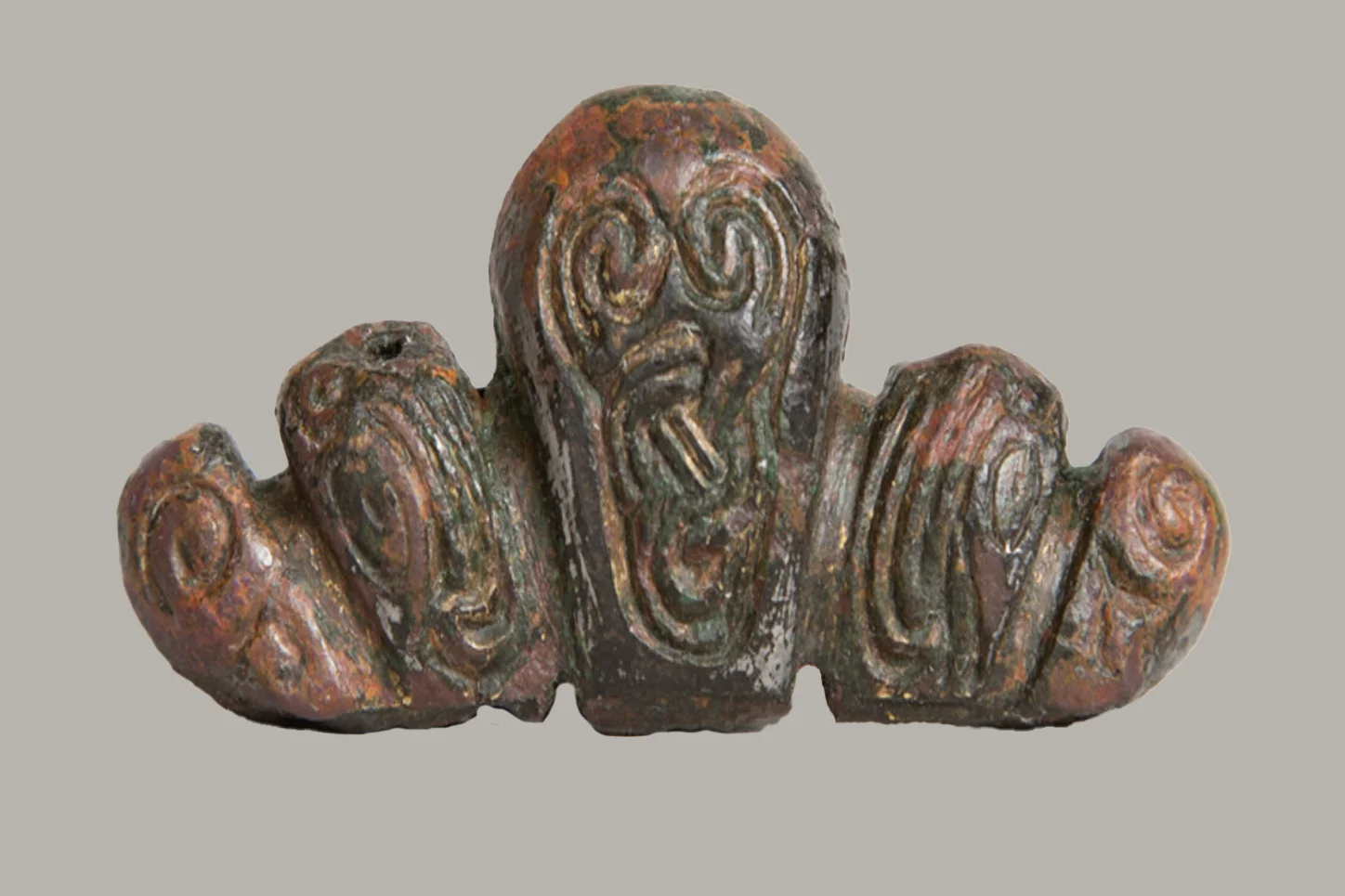Archaeologists have announced the discovery of a “first of its kind” fragment from a Viking sword near the village of Witmarsum in the northern Netherlands.
The fragment is a pommel cap that was once part of a gilded sword hilt from the 10th century AD. The pommel cap features intricate designs in the Mammen style, a decorative artform that grew out of the Jellinge style.
According to a press statement issued by the Fryske Akademy, decorative elements include depictions of wild boar heads that symbolised strength and courage, as well as combat and protection.
Dr Nelleke IJssennagger-van der Pluijm, director of the Fryske Akademy, explained that the discovery highlights the contact between Frisia and the Viking world in Scandinavia and the British Isles, further expanding knowledge of Viking-Frisian relations.
Supported by the Netherlands Organisation for Scientific Research (NWO), Dr. Diana Spiekhout, curator of Middle Ages and Mound Culture at the Fries Museum, examined the pommel cap and remarked, “these could be described as ‘epic’ swords.”
These type of swords have attributed human characteristics which had important symbolic value. They were passed down for generations within elite networks, where successive owners often added ornate decorations. Evidence of this way of treating swords has been found in Frisia, but mainly up to the eighth century AD.
The discovery marks the beginning of a joint study by the Fryske Akademy and the Fries Museum, which hopes to answer questions on how the pommel cap ended up in Friesland, as well as who the sword once belonged to. “By combining our areas of expertise, we can study this find from various angles, namely from the Frisian context, the Viking world, and from sword traditions,” said Diana Spiekhout.
Header Image Credit : Fryske Akademy
Sources : Fryske Akademy





